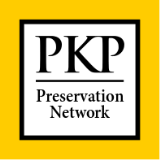Analysis of Domestic Water Supply in Urban Area of Akinyele Local Government of Oyo State, Nigeria
Keywords:
Water Supply, Urban Area, Facilities, Education, ProvidersAbstract
Water supply is paramount to human life because it prevents communicable and non-communicable diseases as well as contributes to socio-economic development and sustenance of cultural values (SDGs, 2016). This chapter highlights sources of domestic water supply in Akinyele LGA, Oyo State, Nigeria. The survey method was adopted by the administration of 399 copies of the questionnaire on households randomly selected in the urban areas of the LGA. The findings show that domestic water supply is more problematic during the dry season with 40% of the respondents not adequately getting potable water, accounting for 77% of the households experiencing typhoid, 11.4% contracting cholera, 8.6% having skin rashes, and 2.9% suffering from diarrhea in the past one year. Further analysis of the association between sources of water and socioeconomic variables indicates no significant association on whether improved or not improved sources with all values > 0.005. Education through public enlightenment on the use of improved water, provision of water facilities and involvement of private water providers, and willingness to pay for their services by households among others are advocated to remedy water problems in Akinyele LGA and, by extension, Ibadan metropolis as well as, other cities in Nigeria.
References
Adelekan, I., Olajide-Taiwo, L., Ayorinde, A., Ajayi, D. and Babajide, S. (2014): Building resilience: Assessing Urban and Peri-urban Agriculture in Ibadan, Nigeria. Padgham J. and J. Jabour (eds). United Nation Environment Program (UNEP), Nairobi, Kenya. Available @ http://www.start.org/upa/Ibadan pdf.
Adelekan, I.O. (2006): Socio-economic implications of water supply in Nigerian urban centres: The case of Ibadan. In: Tvedt, T. and E. Jakobsson (eds.) A History of Water: Water Control and River Biographies Vol. 1, I. B. Tauris Publishers, UK, 372- 387.
Adesina, F. (2019). President Buhari Signs Executive Order 009 on the Open Defecation-Free Nigeria 2025. The Punch, 20th, 2019.
African Development Bank (2009). Urban water supply and sanitation. A project appraisal report of Oyo and Taraba State (Published online).
Akanwa, A.O. and Okwonkwo, A.U. (2019). Challenges of Water and Sanitation Coverage in Nigeria: Implications for Best Practices. Department of Environmental Management, Faculty of Environmental Sciences. Chukwuemeka Odumegwu Ojukwu University (COOU) Uli, Anambra State, Nigeria. Email: angela.akanwa1@gmail.com and auokonkwo@yahoo.com.
Akpabio, E.M. (2012). Water Supply and Sanitation Services Sector in Nigeria: The Policy Trend and Practice Constraints. Working Paper Series 96. Zentrum Fur Entwicklungsforschung Centre for Development Research. University of Bonn.
Akpabio, E.M. and Subramanian, S. V. (2012). Water and Sanitation practices in Nigeria, applying local knowledge to understand the complexity. ZEF working paper series, ISSN1864-6639.
Baternan, O. M., Smith, S. and Roak, P.O. (1998) cited in Fadare, S.O. and Olawumi, P.O. (2008). Domestic water supply and health of Households in the three residential densities of Oshogbo, Osun State (online).
Carr, R. (2001). Excreta-related infections and the role of sanitation in the control of transmission, in, Fewtrel and Bartram (editors), Water Quality: Guidelines, Standard and Health. WHO/IWA publishing, London, pages 89-114.
Christine, L. M. and Richard, D. R. (2006). Global challenges in water, sanitation and health; Journal of water and health 04. Supply 2006. Centre for Global Safe Water, Rollins School of Public Health, Emory University, Atlanta GA. USA.
Federal Ministry of Water Resources (2000). National Water and Sanitation Policy. Department of Water Supply and Quality control. Abuja Nigeria (online).
Okpala, D.C. (1986). Institutional Problems in the Management of Nigerian Urban Environment. NISER Monograph Series No 15.
Sustainable Development Goals (2015). The Sustainable Development Goals of the Post-2015 Agenda: Coments on the Open Working Group (OWG) and SDSN Proposals Revised version, 26th February, 2015. German development Institute.
WHO and UNICEF (2017). Progress on Drinking Water, Sanitation and Hygiene 2017 Update and SDG Baselines. Geneva, World Health Organisation (WHO) and the United Nations Children Fund (UNICEF), 2017, License CCBY-NC-S A3. 0IG.
WHO and UNICEF (2014). Meeting the MDG Drinking Water and Sanitation Target. The Urban and Rural, Water Voice Project, Kyoto (published online.
WHO and UNICEF JMP (2010). Progress on Sanitation and Drinking Water 2010 update. WHO Avenue, Appia 20, 1211 Geneva, Switzerland. ISBN 978924156339556.
WHO/UNICEF JMP (2008). Progress on Drinking Water and Sanitation; special focus sanitation. WHO Avenue, Appia 20, 1211 Geneva, Switzerland. ISBN: 9789208643138.
World Bank (2014). International Development association Project Appraisal Document for Ibadan Urban Flood management Project (IUFMP). Report No: PAD687.
Downloads
Issue
Section
License
Copyright (c) 2021 Oke Mustapha Oludare

This work is licensed under a Creative Commons Attribution-NonCommercial 4.0 International License.






.png)


